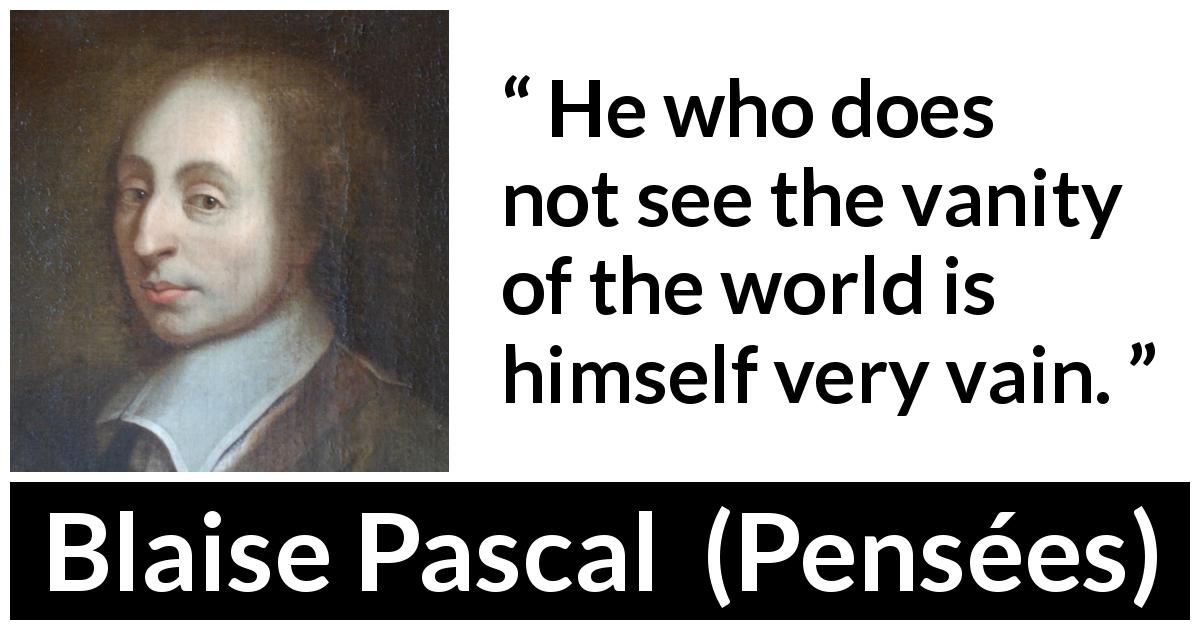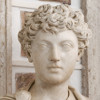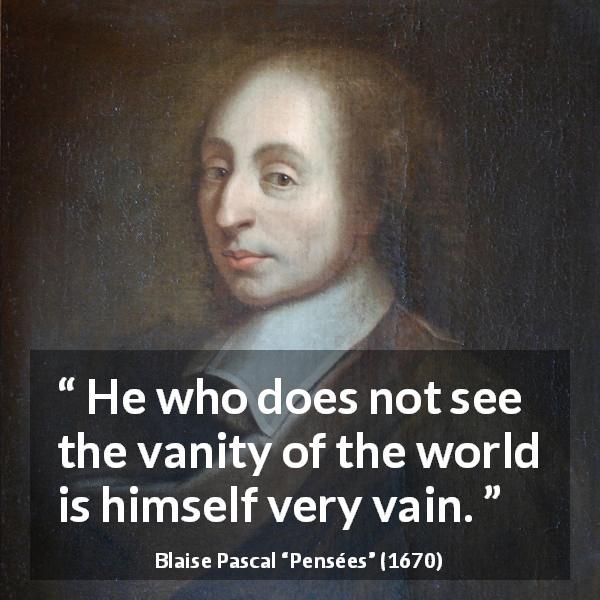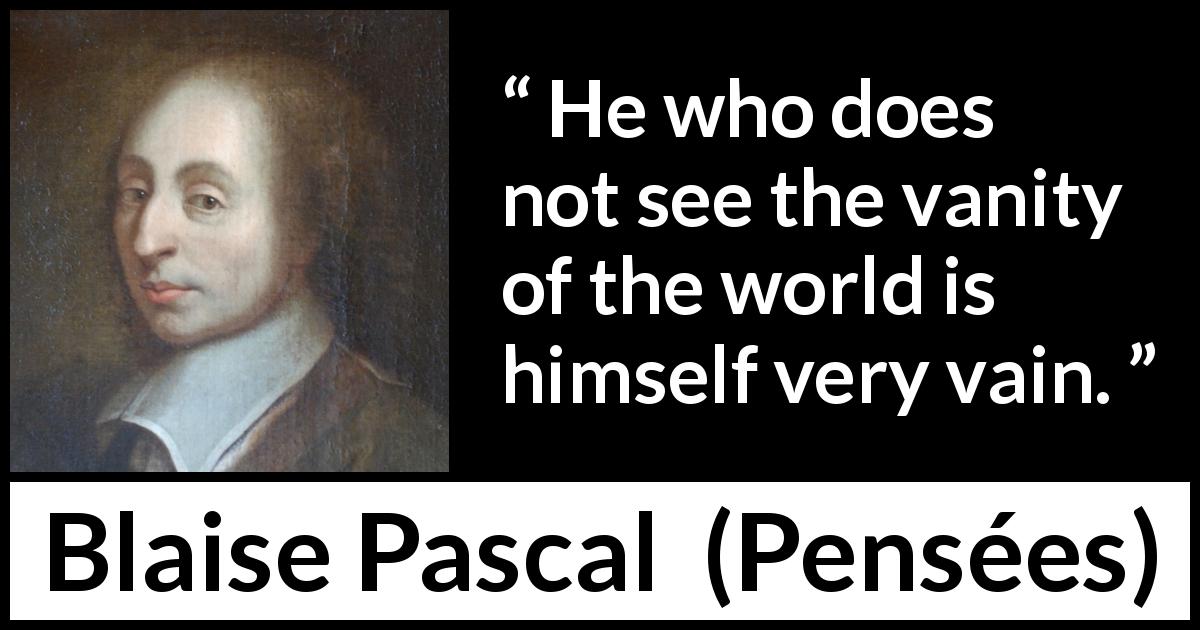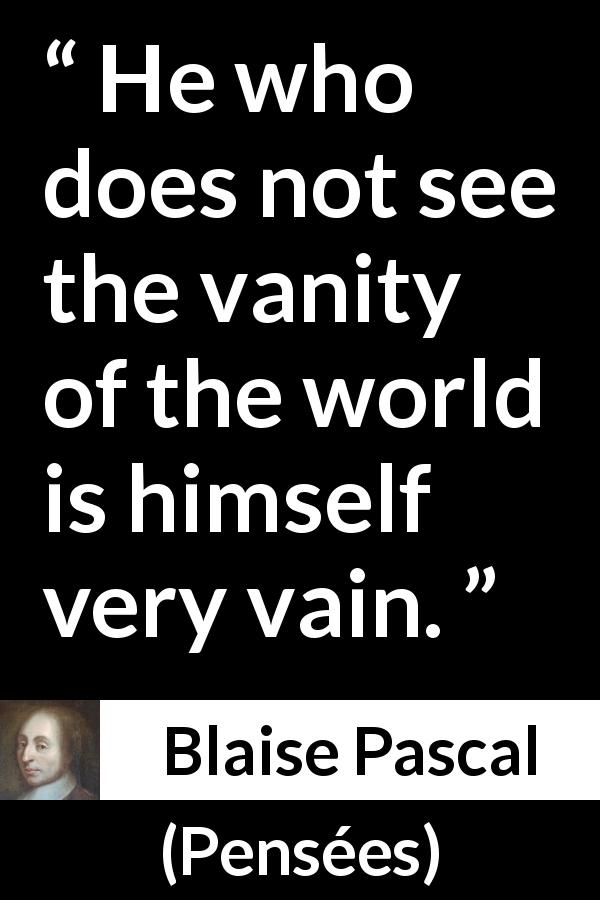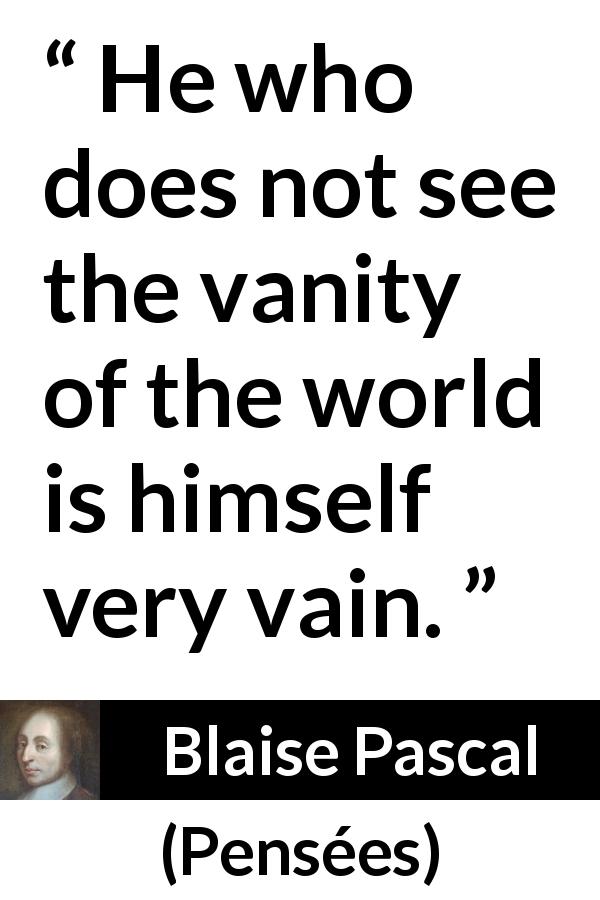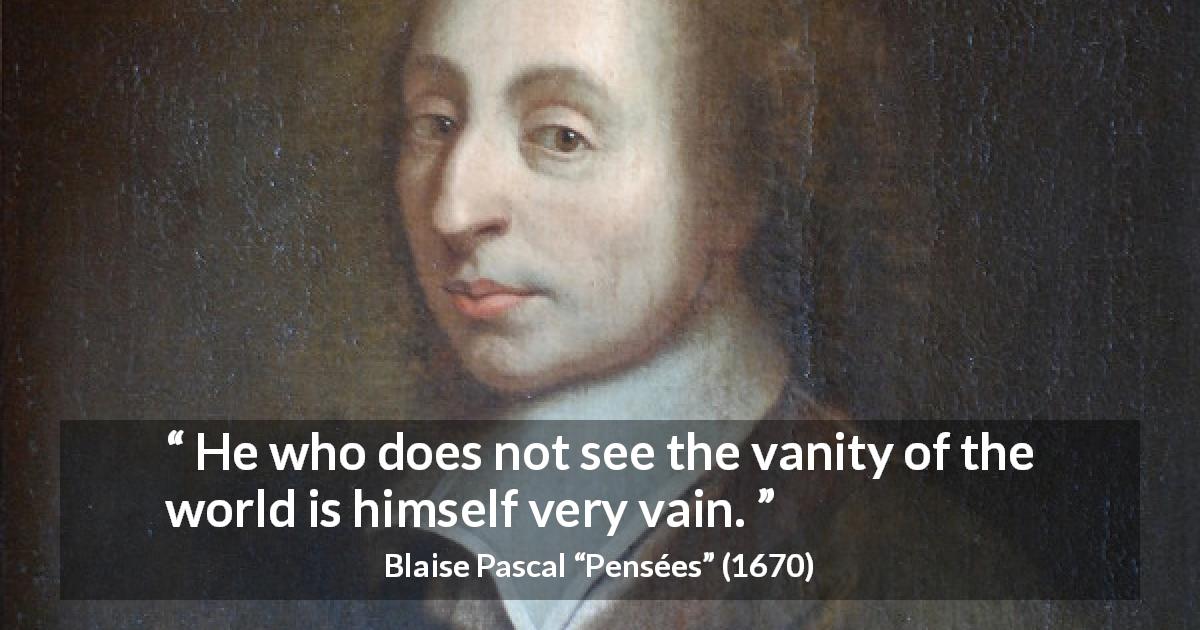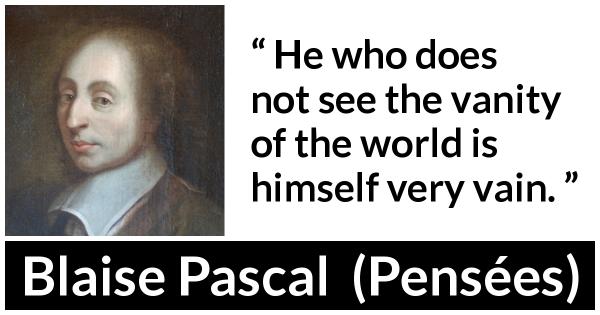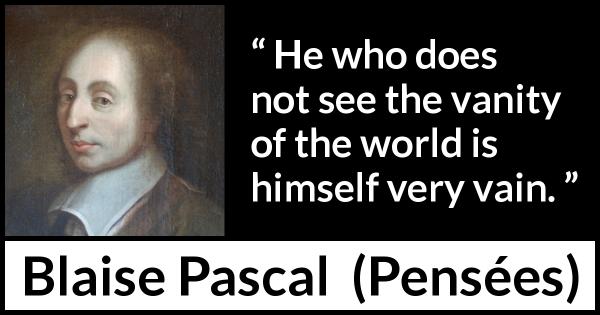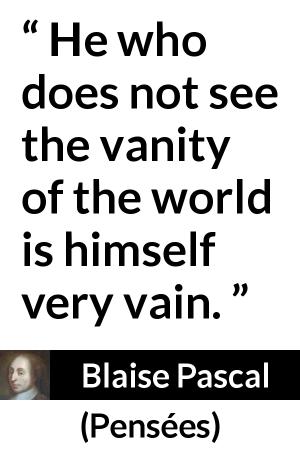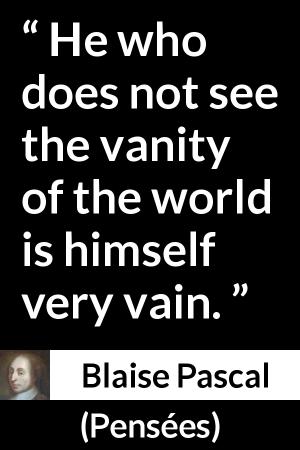“ He who does not see the vanity of the world is himself very vain. ”
Blaise Pascal, Pensées (1670). copy citation
| Author | Blaise Pascal |
|---|---|
| Source | Pensées |
| Topic | vanity |
| Date | 1670 |
| Language | English |
| Reference | |
| Note | Translated by W. F. Trotter |
| Weblink | http://www.gutenberg.org/files/18269/18269-h/18269-h.htm |
Context
“This je ne sais quoi, so small an object that we cannot recognise it, agitates a whole country, princes, armies, the entire world.
Cleopatra's nose: had it been shorter, the whole aspect of the world would have been altered. 163 Vanity.—The cause and the effects of love: Cleopatra. 164 He who does not see the vanity of the world is himself very vain. Indeed who do not see it but youths who are absorbed in fame, diversion, and the thought of the future? But take away diversion, and you will see them dried up with weariness. They feel then their nothingness without knowing it; for it is indeed to be unhappy to be in insufferable sadness as soon as we are reduced to thinking of self, and have no diversion.” source
Cleopatra's nose: had it been shorter, the whole aspect of the world would have been altered. 163 Vanity.—The cause and the effects of love: Cleopatra. 164 He who does not see the vanity of the world is himself very vain. Indeed who do not see it but youths who are absorbed in fame, diversion, and the thought of the future? But take away diversion, and you will see them dried up with weariness. They feel then their nothingness without knowing it; for it is indeed to be unhappy to be in insufferable sadness as soon as we are reduced to thinking of self, and have no diversion.” source
